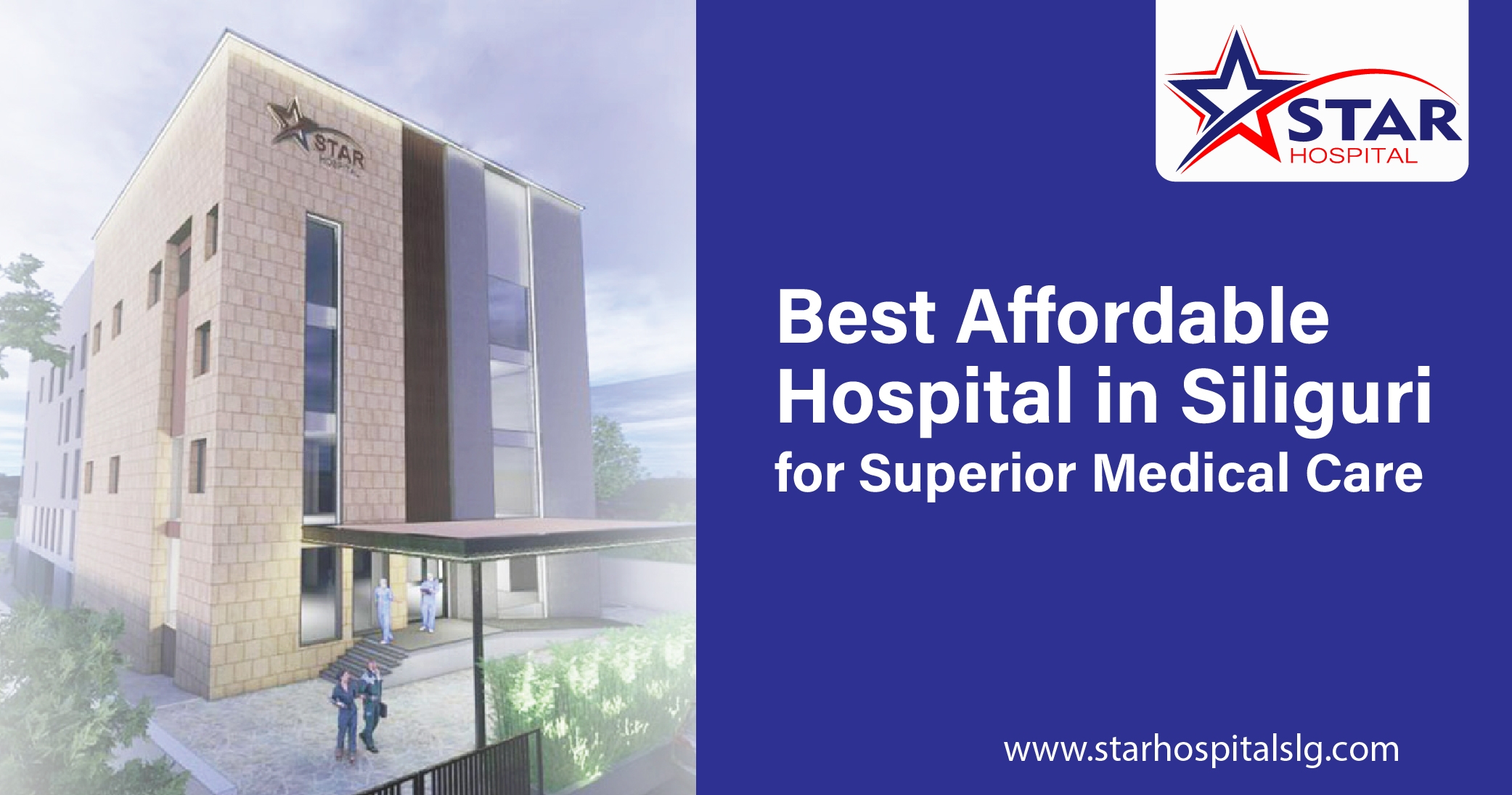There are certain serious health conditions that can only be treated with a surgical procedure. Apart from precise processes of general surgery, your recovery from health issues also depends upon successful post-operative healing. This is because delayed healing can worsen your condition while leading you towards various complications. Proper nutrition plays a significant role in improving the healing processes after a complicated surgery.
The physiological changes that one may experience after surgery can be easily managed by increasing intake of certain nutrients. At Star Hospital we always encourage you to indulge in a nutritious and balanced post-operative diet that is packed with essential minerals, vitamins, and protein. However, you must know that the diet will always depend upon your height, age, weight, and pre-existing conditions.
Top Benefits Of Nutrition In Post-Operative Recovery
1. Reduced Hospital Stays

It is normal to spend a few days in the hospital after surgery for recovery but if the stay increases to more than a few days then it can increase the chances of hospital-acquired infection. Proper nutrition will automatically improve the overall healing process from within which will reduce your hospital stays.
The chances of infections that can be reduced with nutrition are pneumonia, surgical site infection, urinary tract infection, and bloodstream infection. The likelihood of increased rehabilitation process and readmission can also be reduced with nutrition.
2. Minimal Post-Surgical Complications
Surgeries are associated with various complications which include shock, pulmonary embolism, haemorrhage, urinary retention, side effects of anaesthesia, and deep vein thrombosis. However, you must know that proper nutrition can minimize the risk of these complications.

Proper adherence to nutritive supplements and a balanced diet can speed up the healing process for positive surgical outcomes. Patient satisfaction and post-operative recovery are hugely managed by a nutritional diet.
3. Wound Healing
Your diet is a major factor which hugely impacts the wound healing process of the surgical site. Surgery can create an imbalance in your metabolic system while affecting the metabolic process of absorbing nutrients.

Herein, intake of proper nutrients can improve the catabolic phase of your body which is mainly responsible for creating new tissues to cover the wound. Antioxidants, carbohydrates, and proteins are some of the nutrients that can enhance the process of cell rebuilding while allowing the wounds to heal properly.
4. Speedy Recovery
It is always recommended by our general surgeon based in Siliguri that proper nutrition plays the main role in speeding up the recovery process. Eating a diet full of minerals and vitamins can help the body repair the body after surgery.

Furthermore, a balanced diet can also enable you to maintain your mental health and body weight which are other important factors for a speedy recovery. Nutrition can promote mental well-being that can reduce stress and make you feel calmer while reducing the chance of delayed wound healing.
5. Strengthened Immune Function
Any major surgery imposes stress on your body which is also responsible for suppressing your immune system. The medications and anaesthesia used during surgery can also have a negative impact on the immune system functioning. However, with proper nutrition, the immune function can be brought back to normal.

A healthy immune system after surgery is extremely important to reduce the chances of infections and other post-operative complications. Antioxidants and Vitamin A are essential nutrients that can rebuild your immune system to fight infections.
6. Maintenance Of Muscle Mass

Surgery is also associated with the loss of lean body mass and this can lead to muscle weakness, poor balance, and decreased stamina. The process of muscle loss as a part of natural aging can also be increased after surgery. This negative consequence of surgery can be stopped effectively with a nutritious diet.
Proper amount of protein is necessary to heal and maintain the muscle mass during surgical rehabilitation. Most people suffer from loss of appetite after surgery but it is important to follow the nutritive advice of the doctor for the best operative outcomes.
Essential Nutrients To Include In Your Diet After A Surgery
- Carbohydrates- Complex carbohydrates are the main source of energy in our body. To sustain sufficient levels of energy after surgery, it is important to increase the intake of carbohydrates. Some of the foods that you can include in your diet are fruits, vegetables, and whole grains. Issues of constipation and delayed healing can be reduced with the intake of brown rice, oatmeal, whole-wheat bread, and cereals.
- Lean Protein- After your surgery, you must intake food rich in lean protein. Proper levels of protein after surgery are pivotal to repairing and rebuilding the tissues around the surgical site. Some of the good sources of protein that can be added to your balanced diet are lentils, nuts, and beans. Additionally, there are also certain animal-based protein sources such as fish, eggs, dairy products, and chicken.
- Fluids- During the recovery process, you must be able to maintain the fluid levels in your body. This is because dehydration after surgery can not only increase the hospital stay but it can also lead to additional stress on the body. Furthermore, your body also requires increased levels of fluid for wound healing. This is why after surgery you must consider drinking more fruit juices, soups, water, milk, or sports drinks.
- Healthy Fats- Similar to complex carbohydrates, fats are another good source of energy. This is why doctors always recommend increasing the consumption of food with healthy fats. The healthier options that can be added to your diet are sunflower, olive, canola, peanut, and sesame oil. However, you must be careful to reduce the intake of foods high in unsaturated and saturated fats.
- Calcium- Food rich in calcium is also necessary after surgery as it can regulate normal heart rates while reducing muscle contractions and blood clotting issues. The nerve functioning post-surgery can also be maintained with proper amounts of calcium. The ideal food sources with enhanced levels of calcium are green leafy vegetables, dairy products, canned fish, calcium-fortified products, and soy products.
- Iron-rich food- Surgery often leads to blood loss that can increase the risks of low haemoglobin levels. If you suffer from low haemoglobin levels then it can cause weakness and fatigue. To recover from the loss of red blood cells, it is important to include iron-rich foods in your post-operation diet. Some such foods that are high in iron content are spinach, meat, poultry, nuts and seeds, and seafood.
There are certain food items that you must avoid after a general surgery to reduce the risks of delayed wound healing and recovery. The foods that can interfere with optimal surgical outcomes include highly-processed foods, alcohol, sugary food, and cigarette smoking.

Meet Our Contributing Expert:
Clinical expertise and insights for this article were provided by Dr. Vishant Deo, MBBS, MS General Surgery a renowned Advanced Laparoscopy, General & Cancer Surgery. Delve deeper into their professional profile here for more comprehensive information.
Comments (0)





